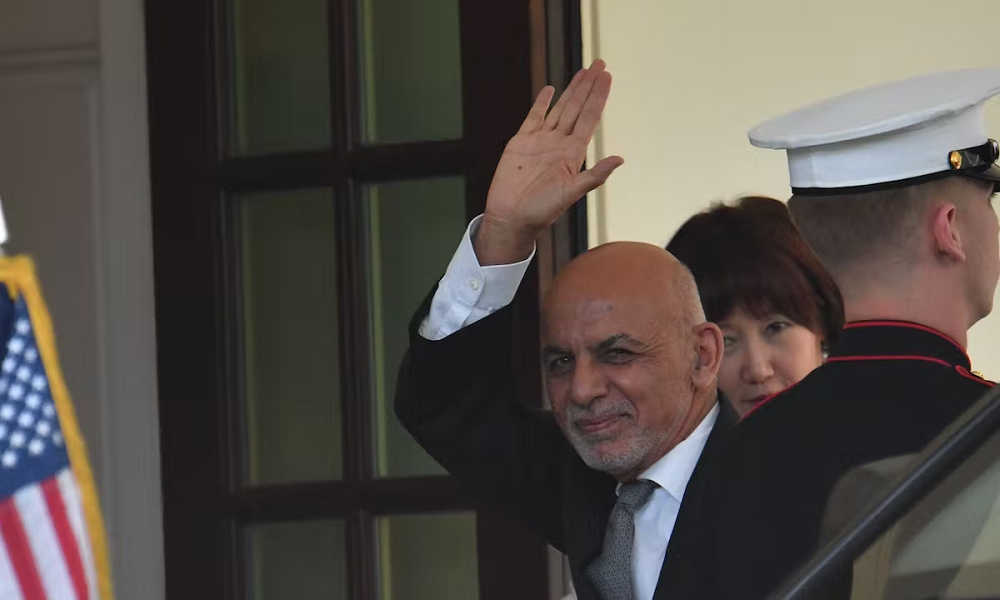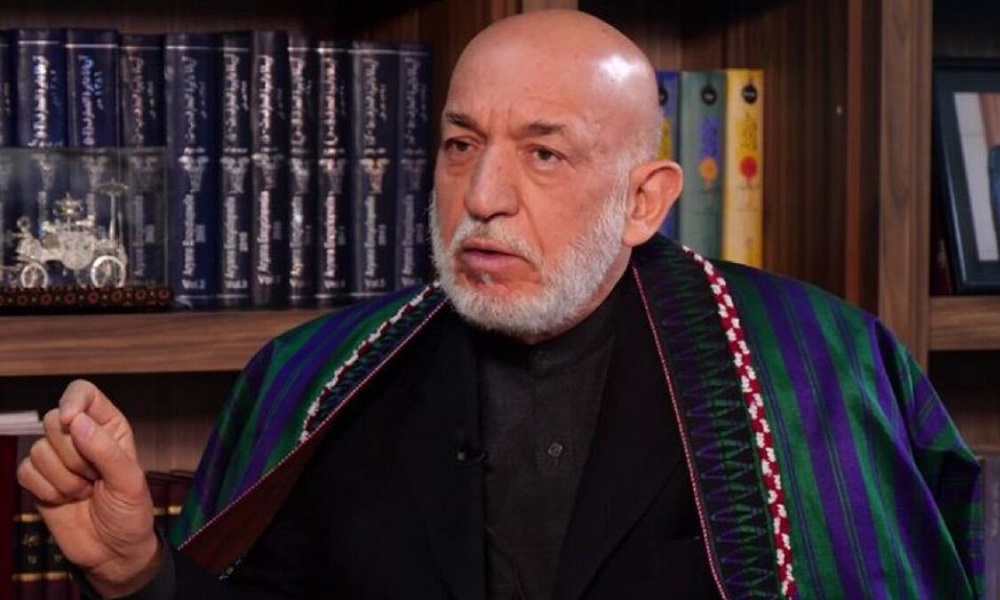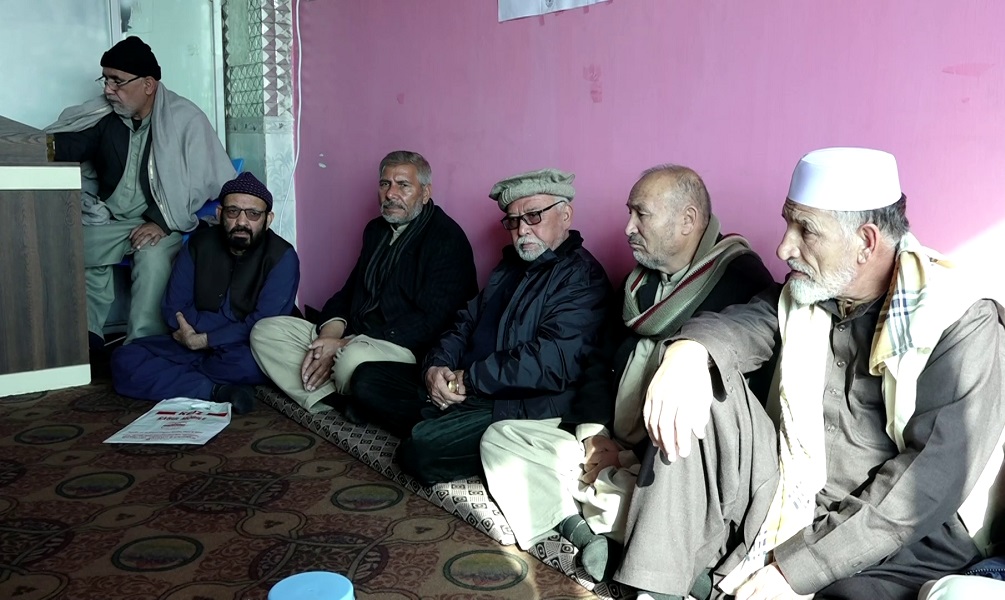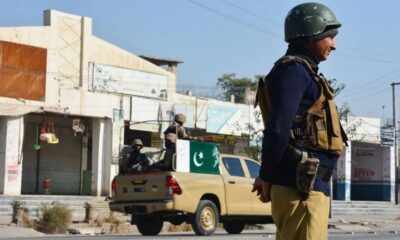Latest News
US and Ghani government ‘set the stage’ for the collapse of republic: SIGAR

Washington’s Special Inspector General for Afghanistan Reconstruction (SIGAR) John F. Sopko stated in a report released Monday, that the agency found six short-term factors accelerated the collapse of the Afghan security forces in August 2021.
In his report to Congress, Sopko said first the decision by the United States to withdraw all U.S. military forces “fundamentally changed the behaviors of the United States, the [Ashraf] Ghani administration, and the Taliban (IEA).”
He said many Afghans thought the U.S.-Taliban agreement was an act of bad faith and a signal that the “United States was handing over Afghanistan to the enemy as it rushed to exit the country,” he said adding that “its immediate effect was a dramatic loss in ANDSF morale”.
In addition, the change in the U.S. military’s level of support to the ANDSF; the failure to establish a self-sustaining ANDSF; former President Ashraf Ghani’s frequent changes of ANDSF leaders and appointment of loyalists; the Afghan government’s failure to take responsibility for Afghan security through the implementation of a national security strategy; and the Islamic Emirate of Afghanistan’s (IEA) effective exploitation of ANDSF weaknesses, were also behind the collapse of the security forces.
“These six short-term factors worked together to cause the ANDSF’s collapse,” Sopko stated in the report.
He said, in addition, SIGAR identified eight systemic factors that explain why, after 20 years and nearly $90 billion in U.S.
security assistance, the ANDSF was vulnerable to collapse in the first place and ill prepared to sustain security following a U.S. withdrawal.
According to him, these factors were:
The length of the U.S. commitment was disconnected from a realistic understanding of the time required to build a self-sustaining security sector;
No one country or agency had ownership of the ANDSF development mission;
Advisors were often poorly trained and inexperienced for their mission, while frequent personnel rotations impeded standardization, continuity of effort, and institutional memory;
The lack of effective interagency oversight and assessment programs prevented a clear picture of reality on the ground;
Afghan corruption eroded ANDSF capabilities;
U.S training, logistics and weapons procurement policies undermined its stated goal of creating a self-sustaining Afghan military;
The United States perpetuated pre-existing ethnic and regional tensions rather than achieving stated mission goals of force diversity and unification;
The U.S. and Afghan governments failed to develop a police force effective at providing justice and protecting Afghan citizens from crime.
Sopko also stated that during SIGAR’s work looking at the accounting for and status of U.S.-provided equipment to the ANDSF and U.S.trained ANDSF personnel, the agency found that the United States lacked a full accounting of equipment and personnel even before the collapse.
He said the IEA is now using U.S.-provided military equipment in operations; and while some U.S.-provided aircraft have been recovered, others remain in limbo in other countries.
In addition, ANDSF personnel have escaped, are in hiding, have been killed, or may have joined extremist groups, Sopko stated.
Sopko also stated in the report that the US department of defense and the state departed declined to review the interim
Draft of the report and in turn denied SIGAR access to their staff, “and mostly declined to answer requests for information”.
“This limited SIGAR’s ability to perform this evaluation. Still, this final version includes additional information that we received from U.S. and former Afghan officials over the past eight months, without support from U.S. agencies.”
Latest News
G7 envoys urge national dialogue for lasting stability in Afghanistan

Special Representatives of the Group of Seven (G7), including the European Union, have emphasized the importance of a national dialogue for achieving long-term stability in Afghanistan.
Following a meeting on Afghanistan in Geneva, Switzerland, G7 special envoys issued a joint statement calling for the restoration of women's rights and urging the Islamic Emirate to fight terrorism.
The statement reads: "Achieving sustainable peace and stability requires credible governance that represents all segments of Afghan society."
The representatives also expressed concern over the IEA’s decision to ban girls from attending medical institutes, warning that it will have devastating consequences for the citizens, particularly mothers and their infants.
The statement described this ban as unacceptable and called on the Afghan authorities to lift it immediately.
Earlier, countries and international organizations had called for the removal of restrictions on the education and employment of women and girls, emphasizing the need for a national dialogue.
In response to these concerns, IEA has repeatedly stated that it will not allow interference in the internal affairs of the country.
The G7 special envoys also expressed their concern about the recent terrorist attacks in Kabul and the surrounding region, warning that terrorism remains a serious threat to Afghanistan's security. They confirmed the actions of the IEA against Daesh but stressed the need for more decisive measures.
Latest News
Afghanistan’s bright future lies in educating girls: Karzai

Hamid Karzai, the former president of Afghanistan, says the demand of Afghan girls for the reopening of schools and universities is their fundamental right and adds that Afghanistan cannot have a bright future without ensuring access to education for girls.
In a statement on his X (formerly Twitter) account, Karzai said: "The demand and voice of our country’s girls for education and knowledge is a rightful one and crucial for a prosperous Afghanistan."
He further emphasized, "Empowering the youth—both girls and boys—is the only way to achieve self-reliance, break the cycle of poverty, and drive the development and prosperity of society."
Karzai underscored that education is vital for Afghanistan’s growth and development, expressing hope that the doors of schools and universities for girls will be reopened as soon as possible.
Latest News
IEA to set up special courts to address pensions

Mawlawi Hebatullah Akhundzada, the supreme leader of the Islamic Emirate of Afghanistan (IEA), has issued a decree to establish special courts to address pensions, Bakhtar news agency reported on Saturday.
According to the decree, the courts must confirm and process pensions in accordance with Sharia and law.
Pensioners have repeatedly voiced concern over delay in payment, saying that their financial challenges are growing.
Earlier this year, IEA's supreme leader banned money being deducted from salaries of government employees for pensions.
He also requested information on the tenure of employees and the total amount deducted from salaries for pensions.
-

 Sport5 days ago
Sport5 days agoATN once again seals deal to broadcast upcoming IPL across Afghanistan
-

 Sport5 days ago
Sport5 days agoLanka T10: All three matches abandoned due to rain
-

 Latest News5 days ago
Latest News5 days agoIndia hoping to import coal and marble from Afghanistan
-

 Sport4 days ago
Sport4 days agoZimbabwe’s opening ODI against Afghanistan abandoned
-

 Latest News5 days ago
Latest News5 days agoFuel prices rise in Herat as winter approaches
-

 Latest News5 days ago
Latest News5 days agoJapan announces $27.5 million aid package to Afghanistan
-

 Latest News3 days ago
Latest News3 days agoTwo horror accidents on Kabul-Kandahar highway leave 52 dead
-

 Latest News1 day ago
Latest News1 day agoAfghan men must stand with women to support viable future of country: US envoy
























